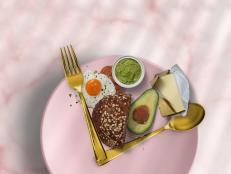Diet 101: GAPS Diet
The GAPS Diet promises to improve digestion and psychological health. We investigate.

Lisovskaya/Getty
The GAPS Diet, short for gut and psychology syndrome, was developed by Dr. Natasha Campbell-McBride to help improve digestive and psychological health. Campbell-McBride’s theory is that many conditions that affect your brain are due to a leaky gut. It is a leaky gut (and increased permeability of the gut wall) that allows chemicals and bacteria from your food and environment to enter your blood when they wouldn’t normally. The diet promises the alleviation of numerous medical conditions including autism, food allergies, meningitis, arthritis, diabetes, and autoimmune disorders. Here’s a look into this diet — and if it lives up to all the hype.
What Is the GAPS Diet?
The diet itself is quite elaborate. It restricts all grains, commercial dairy, starchy foods and all processed and refined carbohydrates, and encourages easily-digestible and nutrient-dense foods (which are defined as you read through the various phases described below). Most of the foods on the GAPS diet consist of meat, fish, eggs, fermented foods and vegetables. Followers are discouraged from over-indulging in baked goods, even from nut flours and fruits, because it can be detrimental to the gut’s healing process.
How Does It Work?
The overall diet is divided into two phases: The Introduction Diet and Full GAPS Diet. According to the GAPS website, the Introduction Diet can be “very overwhelming to patients, parents and children who are used to a traditional Western Diet.” The Introduction Diet is then divided into 6 phases where specific foods are introduced at each phase. For example, in phase 1 the instructions are to make homemade meat or fish stock, to make soups with these stocks, to eat probiotic foods (like homemade yogurt or kefir) and to drink ginger tea with a touch of honey between meals. Phase 2 adds on to phase 1. The diet says to add raw organic egg yolks, specifically to every bowl of soup or meat stock, and to add meat and vegetable casseroles (without spices). Homemade yogurt and kefir should be increased in phase 2, fermented fish should be introduced, and 1 teaspoon of homemade ghee a day should be consumed. The phases continue adding various foods and can take between 3 to 6 weeks to complete, depending on the individual and the symptoms they exhibit.
Once you complete the 6 phases of the Introduction Diet you can then move on to the Full GAPS Diet which is recommended to be followed for between 18 to 24 months. There is a very specific list of foods that should be eaten and avoided. Examples of foods to eat are apples, apricots, artichokes, Asiago cheese, asparagus, avocado (including oil), fresh or frozen beef, collards, mushrooms, raisins, shellfish, duck, lamb, nut and nut flours and uncreamed cottage cheese (dry curd). Foods to avoid include acidophilus milk, agave syrup, algae, aloe vera, amaranth, commercially prepared apple juice, arrowroot, any kind of pasta, baked beans, chocolate, beer, rice, commercial tea, Jerusalem artichokes, wheat and millet.
Some diet tips to consider on the Full GAPS Diet include:
- Combine vegetables (raw, fermented, and cooked) with meats and fish at each meal to balance pH
- Eat fruit on its own (except avocado) between meals so it doesn't interfere with the digestion of meats
Is It Scientifically Sound?
There are no peer-reviewed studies surrounding the GAPS Diet. There is some research around gut permeability, which is the theoretical basis of this diet. A 2014 review study published in BMC Gastroenterology says that there is a connection between intestinal barrier and intestinal permeability for health and disease, however, it's poorly researched and more studies are needed to make any sort of conclusions.
Based on the outline of the diet provided on the GAPS diet website some of the claims are unfounded or even potentially dangerous. For example, statements like "fruit interferes with the digestion of meat" or the recommendation to choose organic produce over organic meats "because animals have their own detox system that may neutralize antibiotics and hormones used on them." Both statements are not scientifically sound. In addition, eating raw egg yolks can increase the chance of food borne illness salmonella. Further, the diet eliminates many sources of whole grain, which is fiber that help feed gut microbes, along with numerous sources of nutrients from whole grains.
Should You Try It?
This diet was created for people for with specific medical conditions. Even so, it isn’t scientifically sound and some of the guidelines do not make sense. It’s also restrictive and tough to follow. The Full GAPS Diet is to be followed for up to 2 years...is this something you can really do?
Toby Amidor, MS, RD, CDN, is a registered dietitian and consultant who specializes in food safety and culinary nutrition. She is the author of The Greek Yogurt Kitchen: More Than 130 Delicious, Healthy Recipes for Every Meal of the Day.
*This article was written and/or reviewed by an independent registered dietitian nutritionist.
Related Content:


































